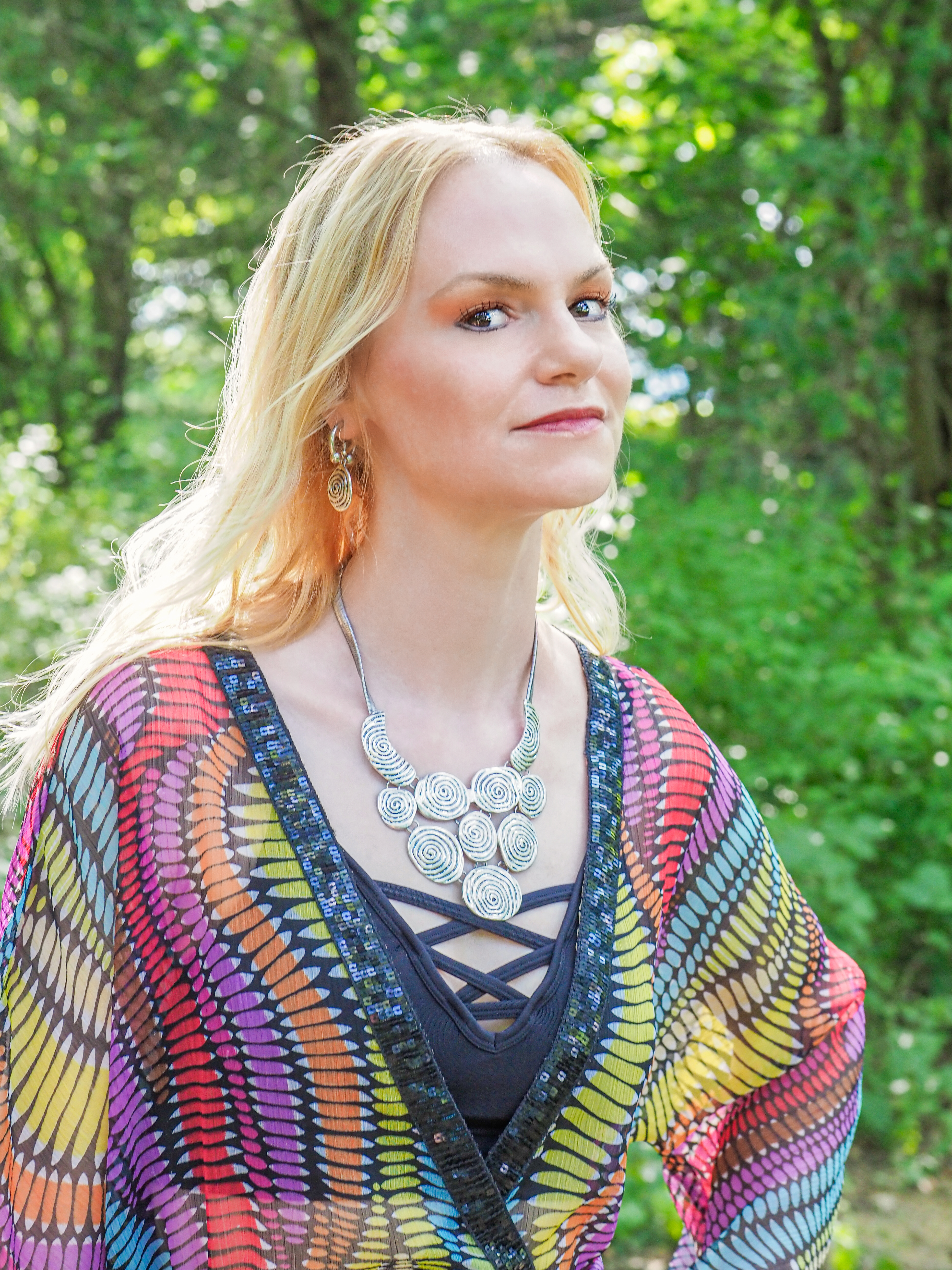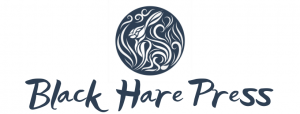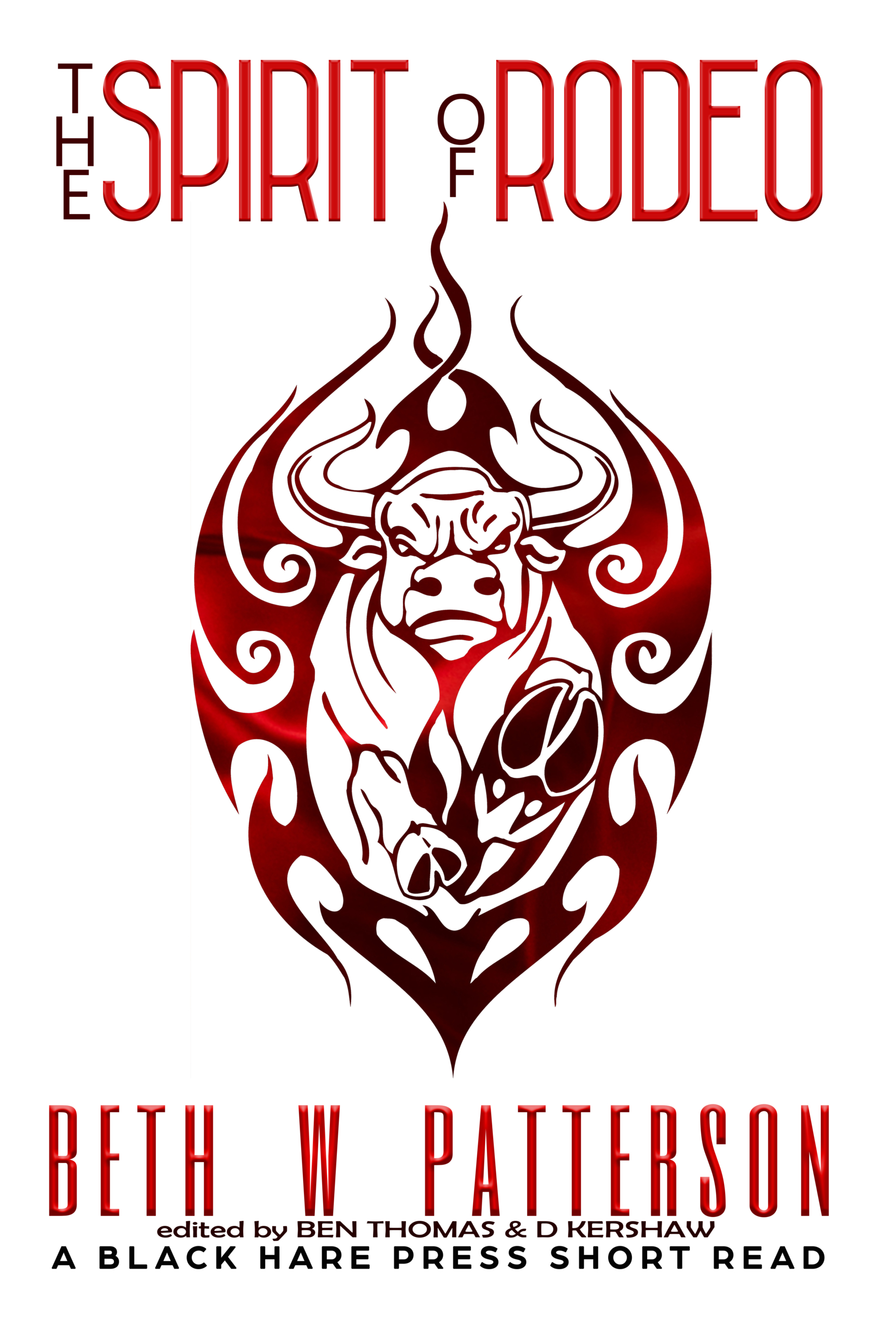
My grandmother regaled me with stories of William Faulkner, who lived on her street when she was a little girl. She also knew Eudora Welty from college and told me about the measures Eudora would go to just for some peace of mind or solitude in which to write. It’s enough to make me realise how good I have it when I want to slip into my office, and that I really have no excuses for slacking.
What’s your background, what compelled you to start writing?
Books were a part of my life as long as I can remember. I’m from academic stock on both sides of my family. My mom published several books of her poetry and short stories, and if I want to read them, I have to maintain my command of French. My grandfather taught English literature. My brother is constantly translating Icelandic sagas, so I have a miniature library of Norse lore sitting next to me as I type this. I’m the black sheep who decided that making a living singing dirty songs in dive bars would be a good idea, so didn’t become serious about writing until almost a decade ago.
Before I learned to speak, I bonded with adults who read to me. Before I was in kindergarten, I taught myself to read, and even write clumsy letters, although I often got my lowercase b and d confused. I wrote little one-page stories in crayon, later expanding to what I guess would be considered fan fiction. When I got a little older, if I was sick or school was out, I’d accompany my mom to her office at the university where she taught, and she’d let me write stuff on her (I’m dating myself here) electric typewriter.
My grandmother regaled me with stories of William Faulkner, who lived on her street when she was a little girl. She also knew Eudora Welty from college and told me about the measures Eudora would go to just for some peace of mind or solitude in which to write. It’s enough to make me realise how good I have it when I want to slip into my office, and that I really have no excuses for slacking.
What kind of research do you do?
I try not to write irresponsibly, so if I can bombard people with questions or get up close and personal, I get the most accurate details. Recently I picked the brains of a fireman to find out what really happens inside a building when it catches fire, and a policeman to see how an investigation is typically conducted. I also got a private audience with a riverboat pilot/calliope player so that I could see that crazy instrument on the Steamboat Natchez up close (as close as you’ll want to get to something that loud and belches that much steam). He even let my husband, who’s a professional jazz pianist, play it. The entire French Quarter can hear the calliope, so it’s not the sort of thing that should be played by amateurs!
Which other authors are you friends with, and how do they help you be a better writer?
Every author I’ve made friends with has helped me become a better writer. That’s the short answer.
Before I made the leap from full-time music to part-time writing, I had befriended the late Robert Asprin, who offered me a peek into his methods before the world lost him entirely too soon. After he died, his copies of my CDs were given to his long-time collaborator Jody Lynn Nye. I wrote to her and introduced myself; we sent each other books and music, and by the time she and her husband Bill Fawcett came to New Orleans, we became friends. Not long after that, I thought I’d give this writing thing a shot. Several years later, in exchange for house-sitting for Bill and Jody, they perused my novel in progress and pretty much saved it from becoming an absolute train wreck. Through that impromptu writing boot camp I learned a lot about not only what doesn’t work but also why these things don’t work. I still occasionally pick up a helpful tidbit (or six) when I visit them. Sometimes I just bring up the topic of some concept I’m working on, and they’ll stop me from running off the rails!
There have been a few other writers who helped me along with finding a narrative that worked, especially in my early days. Michael A. Ventrella not only created several anthologies that allowed me to share tables of contents with some big names, but he also offered me some valuable guidance when I was bumbling through my first stories for his Fortannis series.
When I lived in Starkville, Mississippi, I would frequently visit with Terry Lynn Thomas, who’s best known for her bestselling historical mysteries. We had many a writing chat in the middle of power walks, meals, vodka, gossip, or tarot cards. She’s wonderfully supportive of other writers.
Judith Tarr is another literary legend and lovely human being who has offered me tremendous guidance. Jody and I had the pleasure of spending the better part of a week at “Camp Lipizzan,” where we stayed at her home in Tuscon, Arizona, rode her horses, and asked her all the equestrian questions we needed answers to. Irresponsible writing about horses is definitely something Judy is happy to prevent, and it bugs her when people write about riding at a gallop all day (which would kill a horse) or a horse that’s twenty hands high (which is Guinness World Record-breaking but otherwise pretty implausible). When I’m faced with a story that’s near and dear to my heart, and I need a ninja-level beta reader, I hire her because I know that I’m also going to get an education in how to improve both my plot and my grammar.
It’s also energising to get input from writers who use different genres than fiction or formats than stories. My friend Gwyndyn T. Alexander is an accomplished poet, who first made me realise that while there can be some overlap between poetry and lyrics (the latter of which was my main output for over twenty years), lyrics are not necessarily poetry. This opened my eyes to a new way of expressing something through the written word. My childhood friend Rose Enyo Bratcher is another great poet who also possesses this crazy-awesome imagination for plots that delve deep into her African heritage, so I hope I’ll get to read some of her fiction someday soon. And my friend Tasha J. Riley is a screenwriter as well as a comedian. Screenwriting is probably the most competitive field in writing, if not all creative arts, and her sublime comedic wit is going to make her a household name.
Now social media has allowed me to form kinships with writers and editors worldwide. It’s not unlike the music business with seeing the same faces on stage in different lineups, only instead of various bandleaders, it’s publishers, anthology creators, and fellow authors.
I love visiting art exhibits or reading biographies that tell about various writers, artists, poets, and composers who were all in cahoots with one another. I think a having creative tribe is important for growth.
If you didn’t write, what would you do? Or, if writing is not a full-time job, what do you do?
Playing music is still my bread and butter. I secretly find it hilarious that if I don’t make it as a writer, at least I have my music to fall back on.
Were you an avid reader while you were growing up?
I was indeed. Summer vacation often meant going to the public library, and I was happy as a clam getting to choose ten books at a time. I was bullied a lot in school, so whenever possible, I tried to immerse myself as best as I could with a book in a corner somewhere. This taught me to be self-sufficient as long as I had my mind engaged. Recreational reading tapered off due to necessity when I was in college (and playing five nights a week), but it’s something that I consider being essential now.
What is a little-known fact about you?
I can perform music in front of thousands of people, but I freak out if one person watches me parallel park.
In relation to your latest book;
What sparked the idea for this book?
The title is a spoof of a Rush song, “The Spirit of Radio.” Rush has been my favourite band since I was in my early teens, and one pun to myself got the whole thing rolling. Back in the summer of 2016, a friend of mine had posted on Facebook that she had just learned of boanthropy, or the psychological disorder in which people believe themselves to be bovine. Since I’d always been partial to shape shifting stories, I changed the figurative to the literal, and the premise practically wrote itself. At the time, I was pretty miserable and needed some humour in my life. Taking what I already knew about the music scene and adding the element of a rodeo clown gave it the absurdity it needed to get the momentum going. But I didn’t polish it up until last year.
And, lastly;
What’s brewing? What projects are you working on?
How many half-finished and unpublished books do you have right now?
I’m trying to finish about four short stories. Then I plan to focus on two novels that I’ve started: a sequel to my debut novel The Wild Harmonic, and a stand-alone book that I can only classify as “circuspunk,” a subgenre created by former professional clown Charie D. La Marr. I’ve been doing tons of research on circus lore, and even have a friend who is a fourth generation circus performer, so I have lots of material to draw on just by his anecdotes alone. But I still need to make sure that it fits the genre before I slap such a daring label on it!




The Spirit of Rodeo by Beth W. Patterson – Launches 23rd April 2021
/by Black Hare PressMy grandmother regaled me with stories of William Faulkner, who lived on her street when she was a little girl. She also knew Eudora Welty from college and told me about the measures Eudora would go to just for some peace of mind or solitude in which to write. It’s enough to make me realise how good I have it when I want to slip into my office, and that I really have no excuses for slacking.
13 Drops of Blood – Launches 14th February 2021
/by Black Hare PressThis is an industry of rejection and to be successful, an author needs to be able to never throw in the towel, no matter the hard road ahead of them.
Infinity Mirror
/by Anny Saludarby Beth W. Patterson Why is the flora on my family’s land suddenly so much thicker? The sharp cry of a baby freezes me in my tracks. If someone abandoned a child, I have to make sure that it doesn’t die. Wriggling on a bed of ferns is an infant girl. But the most […]
Dunwich Desires
/by Anny Saludarby Beth W. Patterson “Looks aren’t everything” is sometimes the kindest thing a person feels he or she can say. Society deemed me deformed and inbred, horrified by my colour. I often walked through thunderstorms for company. It took that special someone to desire me, but Yog-Sothoth was not the normal lover. I thought […]
YEAR ONE
/by Black Hare PressYEAR TWO
/by Black Hare PressBlaster of Puppets
/by Beth W. Pattersonby Beth W. Patterson “What’s wrong? Did your sense of humour dump you too?” I was too preoccupied with my skinned knees and bleeding palms to answer Jason. Portia, his ex for whom he’d left me, continued her annoying hyena laugh. I slowly rose from the pavement to face him. “Not at all,” I […]
Nodes and Modes
/by Beth W. Pattersonby Beth W. Patterson There was no sound in space, but she felt the music of the spheres with her whole body. The starship had been programmed with pre-recorded songs to break the tedium. But she pined for live music, even more than she missed green grass beneath her feet, a crisp breeze, or […]
The Spirit of Rodeo by Beth W. Patterson
/by Black Hare PressIt’s an anxiety dream come true. Curtis Baum, frontman for the up-and-coming rock band Frozen Wanda, is forced to be a rodeo clown for one night, sparring with a snarky shape-shifting bull.